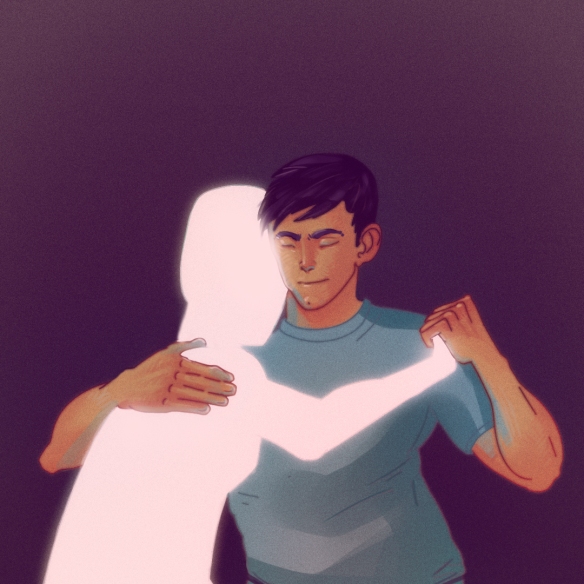
He hadn’t joined the ballroom society out of interest, but had heard the other guys in his dormitory making a fuss over the teacher’s sexy body, her short skirt and high heels and the way her hips swayed like a snake. It didn’t matter if you could dance, the teacher would let you put your arms around her waist, and show you the steps one-on-one. The guys at university clearly had nothing better to do, as the next day the society’s classroom was heavy with testosterone, twenty or thirty pairs of eyes all fixed on the teacher’s lithe swaying curves.
There wasn’t the one-on-one instruction that had been promised, and the teacher had a male teaching assistant–a master’s student–who was specifically tasked with dealing with these idle young men. As there weren’t enough girls, the teacher paired boys with other boys, so after the first few classes, the guys had all scarpered, along with their ulterior motives.
Each society had to prepare a performance for the school’s anniversary celebration, but the ballroom society was having trouble finding a boy for theirs, which put the whole performance in jeopardy. For some reason, he was the only boy to have answered the phone call from the ballroom teacher. The teacher asked him personally to rejoin the team for the anniversary performance. Helpless to resist the teacher’s telephone charm offensive, A-lung put on a brave face and agreed to go back to dance practice.
First, the teacher ran through the choreography and paired up the dancers, then she delegated supervision of practices to her TA. Given A-lung’s good posture, the teacher had paired him with one of the veteran dancers of the troupe so she could help him out as a novice, to bring the performance up a notch.
However, A-lung’s partner was angry at not being given a central role in the performance. It was one thing to lose out to one of the other girls in the dance society, but to have to go on stage with a rookie like him… She hadn’t cracked even a sliver of a smile since they’d started practicing together. If A-lung made an error more than once or twice, she shot him an icy look, as if he had two left feet.


